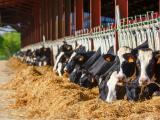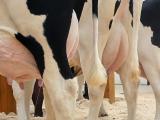Jun 14, 2005 (CIDRAP News) – Efforts to combat avian flu in both people and poultry are continuing, although some steps have proven controversial.
Vietnam has announced plans to begin human testing this summer on a vaccine for H5N1 avian flu, a move that has evoked concern among some experts.
Vietnam's National Institute for Hygiene and Epidemiology has requested that the Ministry of Trade approve a vaccine trial on 10 to 20 volunteers and on 200 to 300 people living in areas that have had poultry outbreaks, China's news agency, Xinhua, announced today.
The trial would run from August to December, sources told Xinhua. The vaccine has been declared effective on mice, monkeys, and chickens, Xinhua said.
However, an online version of TIME Asia magazine's Jun 20 edition has a story that quotes experts with reservations about the vaccine.
The seed virus used for Vietnam's vaccine was mixed with cancer cells to boost replication, and then grown in monkey kidney cells, a method the article describes as highly unorthodox. It is not the same seed virus as the one approved by the World Health Organization (WHO) for H5N1 vaccine development.
"People could get cancer from the vaccine," according to a TIME quote attributed to Klaus Stohr, head of the WHO's global influenza program.
And although the vaccine's creators say they have followed international protocols to prevent the H5N1 virus from mutating in the course of vaccine production, they "haven't opened all their records or allowed an inspection of their labs," the story says.
TIME describes WHO officials as trying to convince Vietnam's government to call off the human testing and create a new vaccine using the WHO-approved seed strain, but indications are that Vietnam's planned tests will continue.
Vietnam has been Ground Zero in this year's human H5N1 outbreak, which began in mid-December 2004 and continues today. The WHO today updated its avian flu tally to reflect three new human infections diagnosed during the last two weeks of May.
"All three patients are from Hanoi and remain alive. No further data about these cases have been provided," the update noted.
WHO now tallies 55 human cases of H5N1 diagnosed in Vietnam since last December. Eighteen of those patients have died.
In Australia, researchers this week are touting a new test for avian flu that they say will identify 15 subtypes of flu in poultry within 1 day instead of the usual 3 weeks.
The test was created by the Department of Primary Industries in Melbourne, according to a story in today's Sydney Morning Herald.
The test is best used as an early warning system in areas that haven't already identified a particular strain, said Bob Cameron, Victoria's Minister for Agriculture, in the Herald story.
Details of how the test works and what methods have been used to determine its sensitivity and specificity were not available. However, the story noted that the test will be discussed at a biotechnology conference in Philadelphia that begins on Jun 19.
See also:
WHO's Jun 14 avian flu update on Vietnam
http://www.who.int/csr/don/2005_06_14b/en/index.html



















